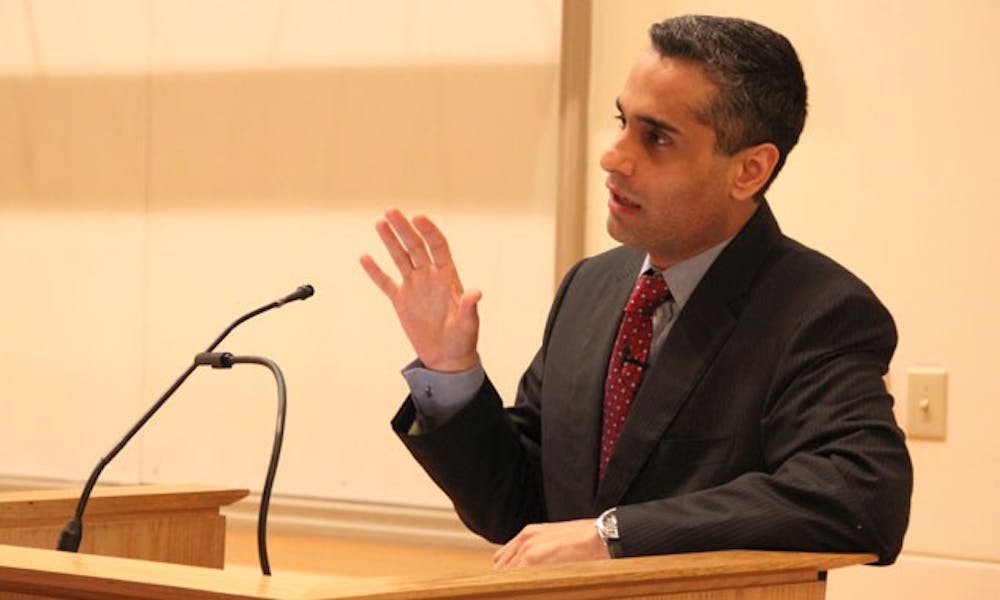Far more resources must be deployed in the fight against human trafficking, said Siddharth Kara, Trinity ’96 and one of the world’s foremost experts on modern slavery and human trafficking.
In a keynote lecture Thursday evening titled “An Overview of Human Trafficking and Contemporary Slavery,” Kara discussed the realities of an increasing human trafficking crisis around the world. The talk was the kickoff event for a three-day conference—“Human Traffic: Past and Present”—hosted by the Center for African and African American Research.
J. Lorand Matory, director of the Center for African and African American Research and Lawrence Richardson professor of cultural anthropology, said the conference’s program—including Kara’s keynote speech, an art exhibition and several expert panels—aims to cultivate the strengths, investigation and scholarship of the Duke community into solving the problem of human trafficking.
Kara began his speech by addressing the confusion surrounding what human trafficking actually encompasses.
“The early definitions of slavery focused on the exercise of power attached to a legal entity,” he said. “Definitions of slavery have shifted away from legal rights of ownership toward instead targeting the nature of the exploitation.”
The three basic steps of the industry, Kara said, are acquiring slaves, transporting them and then exploiting the individual. The transportation phase poses the greatest challenge to halting human trafficking.
“Movement is becoming increasingly difficult to disrupt, because national and international borders are porous,” he said. “Furthermore, while in transit, it is difficult to identify that someone is a victim of human trafficking.”
Kara said he believes the growing pervasiveness of “contemporary, slave-like, labor exploitation” is due to the capacity for traffickers to reap huge profits at almost no real risk.
“The absence of risk can be distilled to the shortcomings in the philosophical, legal, and law-enforcement approaches to human trafficking,” he said.
The most important factor in reducing demand for human slaves will ultimately rest in attacking profitability, he said. Policymakers and worldwide consumers need to be more protective and inclusive in legislating against human trafficking.
Cydney Justman, a graduate student at the Duke Global Health Institute, said she wished Kara had talked more about the bottom-up approach to combating human trafficking.
“I am interested in hearing [Kara’s] opinion on forming empowerment and educational programs for [human trafficking] victims and whether this sort of initiative would stand a chance in the face of the powers that are driving human trafficking today,” Justman said.
Suzanne Shanahan, associate director for the Kenan Institute for Ethics, said she respected Kara’s direct approach to combating this international crisis.
“I really appreciated the extraordinary range of [Kara’s] field experience and his ability to hone in on a specific set of drivers for contemporary slavery,” Shanahan said. “This led to really direct ways to intervene.”
Michaeline Crichlow, associate professor of African and African American studies, said she hopes the conference will help generate new dialogue among scholars and activists that will impact policy recommendations nationally and internationally.
Get The Chronicle straight to your inbox
Signup for our weekly newsletter. Cancel at any time.

